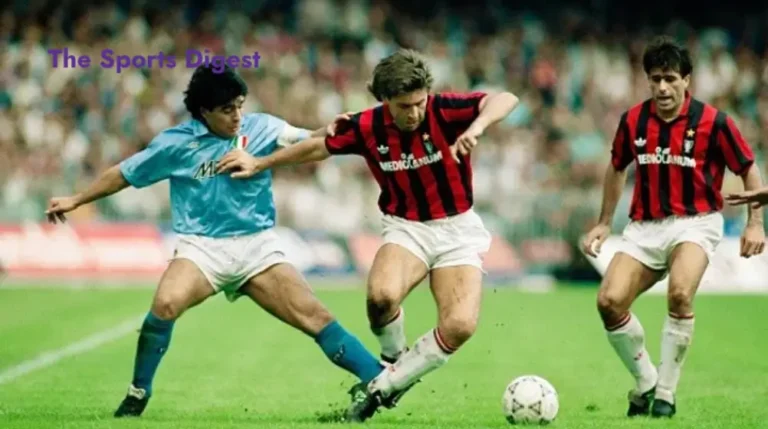Mundial: Absurdo in Club World Cup Chaos
The upcoming FIFA Club World Cup has become the target of sharp criticism, branded an “Absurd Mundial” by football fans and experts alike. At the center of the storm lies FIFA’s qualification system, which has excluded two of Europe’s top-performing sides — Arsenal and Barcelona — despite both reaching the semifinals of this season’s UEFA Champions League.
Table of Contents
Mundial Snubs: Arsenal & Barcelona
The absence of Barcelona and Arsenal from the FIFA Club World Cup lineup has puzzled the football world. Both clubs have showcased world-class talent and strategy throughout their Champions League campaigns. Barcelona, renowned for its rich legacy and attacking philosophy, has displayed peak form this season, eliminating top European sides. Arsenal, under Mikel Arteta, has re-emerged as a tactical powerhouse in Europe, blending defensive discipline with attacking brilliance.
Former Arsenal star Ray Parlour expressed what many fans feel:
“It’s extraordinary that a Champions League semifinalist won’t compete in a tournament claiming to gather the world’s best clubs. Arsenal and Barcelona have earned their place on merit.”
Mundial Qualification Under Fire
At the heart of this controversy is FIFA’s qualification model, which prioritizes historical achievements over current form. The system awards Club World Cup slots based on a multi-year performance window, not the latest season. Champions League winners from the past four years are guaranteed spots, while current form, even a semifinal appearance, counts for little.
For example, Chelsea (2021) and Manchester City (2023) have secured their places based on past triumphs, sidelining clubs like Arsenal and Barcelona despite their standout seasons.
Football governance expert Professor Simon Chadwick called this system flawed:
“If the Club World Cup aims to showcase the best clubs, current form must play a larger role. The system doesn’t reflect that.”
Two-Teams-Per-Country Rule: Hidden Obstacle in Mundial
Adding to the controversy is FIFA’s rule limiting participation to two clubs per country, unless more than two different teams from the same nation win the Champions League within the qualifying window. This rare exception left Barcelona out in favor of Atlético Madrid, which ranked higher based on the last four seasons, despite Barcelona’s superior performance this year.
Spanish football journalist Guillem Balagué summarized the sentiment:
“Atlético deserves respect for its consistency, but excluding Barcelona weakens the tournament’s competitive and entertainment value.”
Surprisingly, Barcelona’s exclusion opened the door for Austria’s Red Bull Salzburg to enter the tournament. Critics find the comparison jarring, given the difference in prestige, resources, and global appeal between Salzburg and Barcelona.
Champions League Semifinalists: Snubbed by the System
The issue becomes even more glaring when one considers this season’s UEFA Champions League final four: Liverpool, Barcelona, Arsenal, and Inter Milan. Each has proven elite status through consistent performances, yet only Liverpool and Inter will compete in the Club World Cup. Barcelona and Arsenal, despite their Champions League success, miss out.
Even Paris Saint-Germain’s (PSG) progress to the semifinals, after finishing 15th in the league phase, shows how unpredictable football can be and exposes the weaknesses of a qualification system based more on past glories than present strength.
Pep Guardiola summed it up:
“Football is about the present, not the past. Qualification systems must reflect the reality of current performances.”
A Broader Governance Debate in Mundial
The Arsenal and Barcelona exclusion highlights deeper questions about football governance. The Club World Cup is not only a sporting spectacle but also a major commercial enterprise for FIFA and its participants. Yet, any tournament that overlooks deserving clubs risks damaging its credibility.
Dr. Sarah Murray, a sports ethicist, noted:
“This isn’t just about rules — it’s about what values football wants to promote: historic consistency or current excellence?”
For Arsenal and Barcelona, the disappointment is profound. Their recent performances earned them global recognition, yet the rules shut them out. For their fans, the absence robs them of a moment to witness their teams’ potential on football’s world stage.
A Broader Governance Debate in the Mundial
As the tournament nears, calls for FIFA to overhaul the Club World Cup qualification process grow louder. Many propose a fairer balance between past achievements and current-season form, or expanding the country quota to allow the world’s true best to compete.
A FIFA spokesperson addressed the controversy:
“Every qualification system faces tough choices. Ours was designed after consulting global football stakeholders, but we’re always open to review and evolution.”
For now, the Club World Cup will proceed without Arsenal and Barcelona — two giants in peak form but victims of an outdated selection framework. Whether this sparks permanent reform or remains a one-off controversy, the debate has already reshaped conversations about fairness, merit, and the future of global football competitions.
Have you ever read an article like this?
There are no reviews yet. Be the first one to write one.






